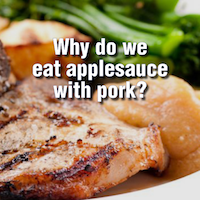carol_cheatham@unc.edu
704-250-5010
Lab Website
Carol L. Cheatham, PhD
Associate Professor, Psychology & Neuroscience
An important member of the UNC Nutrition Research Institute’s research team, Carol L. Cheatham, PhD, focuses on how nutrition can improve children’s brain function. Specifically, her team studies the importance of nutrients for the development of memory and attention abilities.
Broadly defined, Dr. Cheatham’s research focuses on the relationship between an individual’s genome and the metabolism of nutrients, and how this leads to differences in cognitive and social development. Specifically, she is interested in the development of memory and attention as they are the basis for learning, and therefore school readiness. For example, her research asks if the supplementation of children’s diets with omega-3 fatty acids have an effect on their memory abilities over a determined period of time. Many different methods and tools are used in the Cheatham lab to assess abilities, including taking turns with the children building unique toys and the use of special equipment to read their brain activity while they are watching pictures on a computer screen.
“Dr. Cheatham is an expert on the importance of omega-3 fatty acids (fish oils) for normal brain development,” said NRI Founding Director Steven Zeisel, MD, PhD, “This is an exciting and promising area of research that is changing the way women eat during pregnancy and lactation.”
Show MoreAn important member of the UNC Nutrition Research Institute’s research team, Carol L. Cheatham, PhD, focuses on how nutrition can improve children’s brain function. Specifically, her team studies the importance of nutrients for the development of memory and attention abilities.
Broadly defined, Dr. Cheatham’s research focuses on the relationship between an individual’s genome and the metabolism of nutrients, and how this leads to differences in cognitive and social development. Specifically, she is interested in the development of memory and attention as they are the basis for learning, and therefore school readiness.
Show MoreCheatham’s Team
In the News
Cheatham Lab Memory Game Pilot Study
August 30, 2018 – The Cheatham Nutrition & Cognition Lab at the NRI is undertaking a new pilot study with 12- and 24-month-old children called the Memory Game Pilot Study. In this study the lab seeks to validate the props used in the elicited imitation paradigm, a nonverbal means of assessing recall memory in preverbal children. The props, which have been designed and produced in the Cheatham lab, will be implemented with a group of young children of the same ages in an already-planned, collaborative study with Emory University.
Whole Foods and Nutrient Synergy
January 29, 2018 – Have you ever wondered why we eat certain foods together? What is it about pork that demands applesauce? Wouldn’t a lovely piece of hard cheese go well with that glass of red wine? Is beef and broccoli just a dish or might there be a benefit to eating those together? It is difficult to trace how these traditional pairings got started. Apples with pork dates back to the time of Christ when an Ancient Roman named Apicius wrote down a recipe, but where did he get the idea? We find a clue in the story of why we eat mint with lamb. In an attempt to decrease the consumption of lamb and thereby increase wool exports, Queen Elizabeth I declared it unlawful to eat lamb without mint sauce, presumably because people disliked the taste of mint sauce (basically mint and vinegar). As it turned out, mint sauce was a great compliment to lamb. So, yes. Your first instinct was correct – we eat certain foods together because they taste good together!
Cheatham Named to Education Board
July 27, 2017 – Carol L. Cheatham, PhD, has been selected to join the Education Board at the American Health Council. The council, comprising leaders and contributors from all areas of healthcare, is America’s leading organization in health awareness and advancement. Dr. Cheatham will share her knowledge and expertise on the effects of nutrition on brain development and function. […]
NRI Grooms Next Gen Scientists
June 27, 2017 • Grant Canipe didn’t always know that he wanted to be a scientist. His revelation came one day at Northwest Cabarrus High School in Concord, NC, when a Duke University student came to Canipe’s AP biology class to discuss his research and plans for graduate school. Canipe found himself inspired by that student’s experience so much that he himself is now completing his doctorate at UNC Chapel Hill in developmental psychology and nutrition. He studies under the direction of Carol L. Cheatham, Ph.D. in the Cheatham Nutrition & Cognition Laboratory at the UNC Nutrition Research Institute (NRI), located on the North Carolina Research Campus in Kannapolis. […]
Publications
2025
Cusick, SE, Mupere, E, Bangirana, P, Baluku, RI, Kroupina, M, Cheatham, CL, Wozniak, JR and Georgieff, MK. “Supplemental choline to prevent and treat learning and memory deficits of early-life iron deficiency (The SupCHO Study): study protocol for a randomized, placebo-controlled trial in Ugandan infants with iron deficiency anemia.” Trials. 2025 Nov 19; 26:524. DOI:10.1186/s13063-025-09246-2; PMCID:PMC12628853.
2023
Cheatham, C.L., Lukowski, A.F., Bauer, P.J. (2023). Infant memory. In John H. Byrne (Ed.), Learning and Memory: A Comprehensive Reference (Second Edition), Academic Press, 2017, Pages 383–402, ISBN 9780128052914, https://doi.org/10.1016/B978-0-12-809324-5.21052-3.
2022
*Camerota, M., *Wylie, A.C., *Goldblum, J., *Wideman, L., Cheatham, C.L., Propper, C.B. (2022) Testing a cascade model linking prenatal inflammation to child executive function. Behav Brain Res. 431:113959. doi: 10.1016/j.bbr.2022.113959. Epub 2022 Jun 8. PMID: 35690156.
Cheatham, C.L., *Canipe, L.G. III, Millsap, G., Stegall, J.M., Chai, S.C., *Sheppard, K.W., Lila, M.A. (2022). Six-month intervention with wild blueberries improved speed of processing in mild cognitive decline: a double-blind, placebo-controlled, randomized clinical trial. Nutr Neurosci.6:1-15. doi: 10.1080/1028415X.2022.2117475. Epub ahead of print. PMID: 36066009.
Cheatham, C.L., Nieman, D.C., Neilson, A.P., Lila, M.A. (2022). Enhancing the cognitive effects of flavonoids with physical activity: Is there a case for the microbiome? Frontiers in Neuroscience, 16, https://doi.org/10.3389/fnins.2022.833202
(*Student)
2021
*Canipe III, L. G., *Sioda, M., & Cheatham, C.L. (2021). Diversity of the gut-microbiome related to cognitive behavioral outcomes in healthy older adults. Archives of Gerontology & Geriatrics, 96,104464 https://doi.org/10.1016/j.archger.2021.104464
(*Student)
2020
Cheatham, C.L. (2020). Nutrigenetics, Fatty Acids, & Cognition, In Caterina, Martinez, & Kohlmeier (Eds.). Principles of Nutrigenetics and Nutrigenomics: Fundamentals of Individualized Nutrition (pp. 347-354), London, UK: Academic Press.
Cheatham, C.L. (2020). Nutritional factors in fetal and infant brain development. Annals of Nutrition and Metabolism, 75, 20-32. doi: 10.1159/000508052






